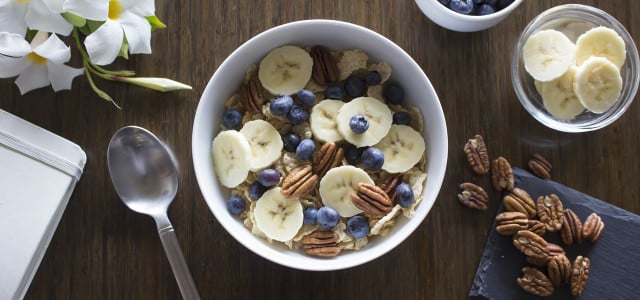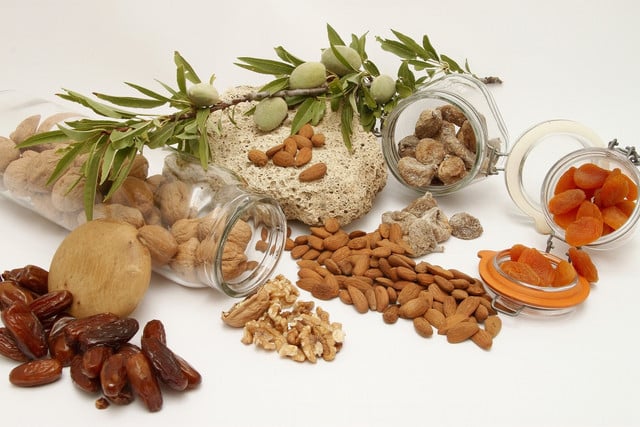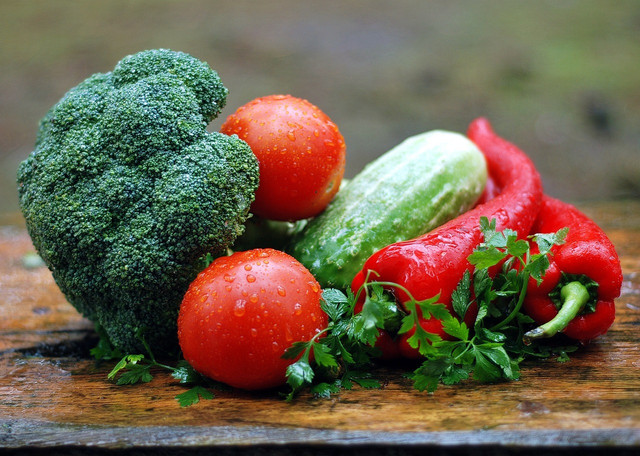
Potassium-rich foods include many fruits and vegetables. But the right preparation determines how much potassium you actually consume.
People must obtain their daily potassium requirement through food, as the body cannot produce the mineral potassium itself or store it.
Potassium, along with other minerals, controls important body functions:
- Potassium creates an electrical voltage in the cells, allowing nerves to transmit information to cells. This is what enables muscles and organs to work.
- Together with sodium, potassium regulates blood pressure.
- As a coenzyme, potassium is also involved in cell growth. A balanced diet with potassium is therefore particularly important for children.
The German Nutrition Society (DGE) estimates that an adult needs an average amount of potassium per day of 4,000 milligrams. Ten-year-old children need about half as much as an adult. In breastfeeding women, the requirement increases to 4,400 milligrams.
According to the Federal Institute for Risk Assessment (BfR), Germans are well supplied with potassium. Only older people can be affected by potassium deficiency due to their diet and certain medications.
These foods are rich in potassium

(Photo: CC0/pixabay/garavitotfe)
Potassium is found in the soil and plants absorb it through their roots. Therefore, potassium is present in varying concentrations in all plant foods. Animals absorb potassium through feed plants, so potassium is also found in meat, dairy products and fish.
These foods are rich in potassium:
-
Fruit: dried fruit, apricots, bananas, raspberries, honeydew melon, currants, kiwi
-
Vegetables: all types of cabbage, legumes, carrots, kohlrabi, turnips, pumpkin, dandelion, corn, radish, salsify, celery, red peppers, tomatoes, fennel
-
Nuts: hazelnuts, cashews, peanuts, almonds
-
(Pseudo-)cereals: spelt, rye, buckwheat
-
Fairtrade cocoa or natural fruit and vegetable juices
The DGE suggests nutritional plans on its website that will help you get the recommended 4,000 milligrams of potassium.
Potassium-rich foods – preparation is important
The element potassium combines quickly with water. So if you cook vegetables, such as broccoli or potatoes, in water for a long time, the potassium from the vegetables remains in the cooking water.
Therefore, the less water you use for cooking, the more potassium and other nutrients remain in the food.
- You can gently steam vegetables like broccoli or eat them raw.
-
You can prepare potatoes or other vegetables in the oven or fry them in a pan.
Compared to fresh fruit or vegetables, potassium is more concentrated in:
- dried fruits
- Tomato paste
- Fruit and vegetable juices
Frozen foods, on the other hand, contain less potassium.
Prevent high blood pressure with potassium-rich foods

(Photo: CC0 / Pixabay / JerzyGorecki)
If your body does not get enough potassium, this can lead to paralysis and cardiac arrhythmias, among other things.
In the short term, illness, such as severe stomach flu, can lead to a lack of minerals such as potassium. Even after one-sided diets, fasting or dehydration treatments, it is advisable to eat more vegetables and fruit that contain potassium. If you have diabetes or kidney problems, you should have your potassium levels tested regularly by a doctor.
The natural balance of potassium and sodium can be disturbed by salty foods. Sodium is found in table salt and can lead to high blood pressure if consumed in excess. Potassium, on the other hand, lowers blood pressure.
To prevent high blood pressure, which can lead to a higher risk of stroke, the DGE recommends a diet rich in potassium. Meals made from fresh ingredients are usually rich in potassium and contain little sodium. On the other hand, ready meals or sausages are usually very salty and should be on the menu less often.
But be careful, too much potassium is also unhealthy for the body. For a healthy person, too much potassium through food is usually not a problem, because the kidneys excrete the excess. However, high-dose potassium supplements can lead to a pathological overdose. You should only take such supplements after consulting your doctor.
Read more on Techzle\.com:
- Phosphorus: important for bones
- Calcium ensures strong bones and teeth
- Vitamins – everything you need to know
Edited by Paula Boslau
** marked with ** or orange underlined Links to sources are partly affiliate links: If you buy here, you are actively supporting Techzle\.com, because we then receive a small part of the sales proceeds. .